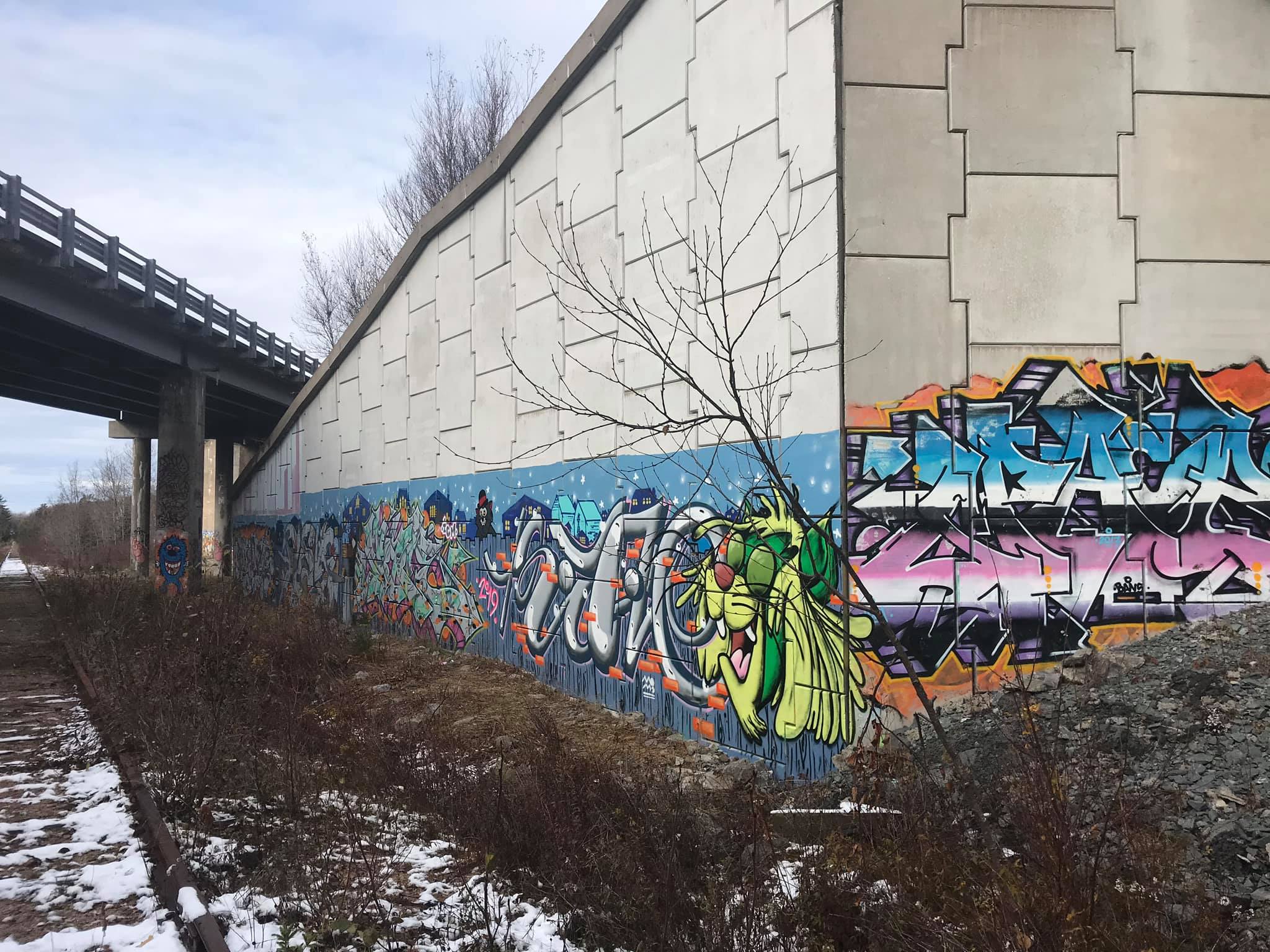 Crim3103
Advanced Qualitative Methods, winter 2023-24 MMH202
weblog
gradesheet index
Crim3103
Advanced Qualitative Methods, winter 2023-24 MMH202
weblog
gradesheet index
"The interpretations of psychoanalysis are translations from a
mode of expression that is alien to us into one which is
familiar," Freud, Complete Psychological Works. Photo: graffiti on underpass, Uniacke, NS
Overview:
This course explores issues of advanced qualitative research
methods, including research ethics, using found materials,
interviewing, participant observation, discourse and content
analysis, thematic and narrative analysis, grounded theory, and
other topics as we proceed. It is both a project design course, and
a reflection on the design of projects by social researchers on
their own work. Blended classes ordinarily combine face-to-face
lectures with online asynchronous material, although in the event of
moving to a remote delivery design the classroom becomes virtual.
Research involves both guided and independent work. Suggestion: work in pairs or
groups, and checkin regularly, eg. classtime.
Course text: Primary: Qualitative Research in Action,
Deborah van den Hoonard, Oxford, 2019, 3rd. Secondary: The Craft
of Qualitative Research. Steven Kleinknecht, ed., et al., CSP,
2018. Online link here...
Conceptual techniques to be learned include:
auto/ethnography, narrative and (rolling) thematic analysis,
photo-voice and photo-elicitation...
Evaluation: See guidelines for general details. (1) Classmark (25%) reflects 'engagement exercises', a series of 1-2
pgs sspaced with refs. As can be seen from the gradesheet, there
is a sliding scale for assignments to reflect both quantity and
quality. (2) Proposal (20%)
due week six, research proposal for study on
issue/event of interest, eg. observations of gender
and sexuality at the gym; autoethnography of shopping as a vegan;
interviews on passing or coming out; the ethnography of tattoos;
discourse analysis of media articles on a social problem;
negotiating status as a parole officer; talking with the homeless;
and so on... see the video on the homepage. (3) Project: (30%), end of term (interactive format, preferred, eg.
powerpoint; or 10 page essay, dspaced; or video...).
The idea is to take the proposal and expand it to the equivalent
of an essay with interactive components, eg. take the essay and
put it in the notes of the powerpoint, and add annotations and
visual elements to the slides. (4)
Exam: (25%) short answer, or alternative
online protocol: This course uses a hybrid protocol, a blend of
in-person and online (timeshifting class material into a more
flexible reality). Using the required
course text, notes, guided reading questions, and video exercises
will be announced through webadvisor email, usually at first class
time of the week. These will also be posted on the weblog,
submitted through email by the end of the week, recorded on the
gradesheet with feedback usually by email. The readings are
mandatory, the exercises are a proxy for class attendance, and all
will be preparation for a term-length guided independent research
project. *This format is flexible,
individually-focused, interactive, and indepth*
 Crim3103
Advanced Qualitative Methods, winter 2023-24 MMH202
weblog
gradesheet index
Crim3103
Advanced Qualitative Methods, winter 2023-24 MMH202
weblog
gradesheet index